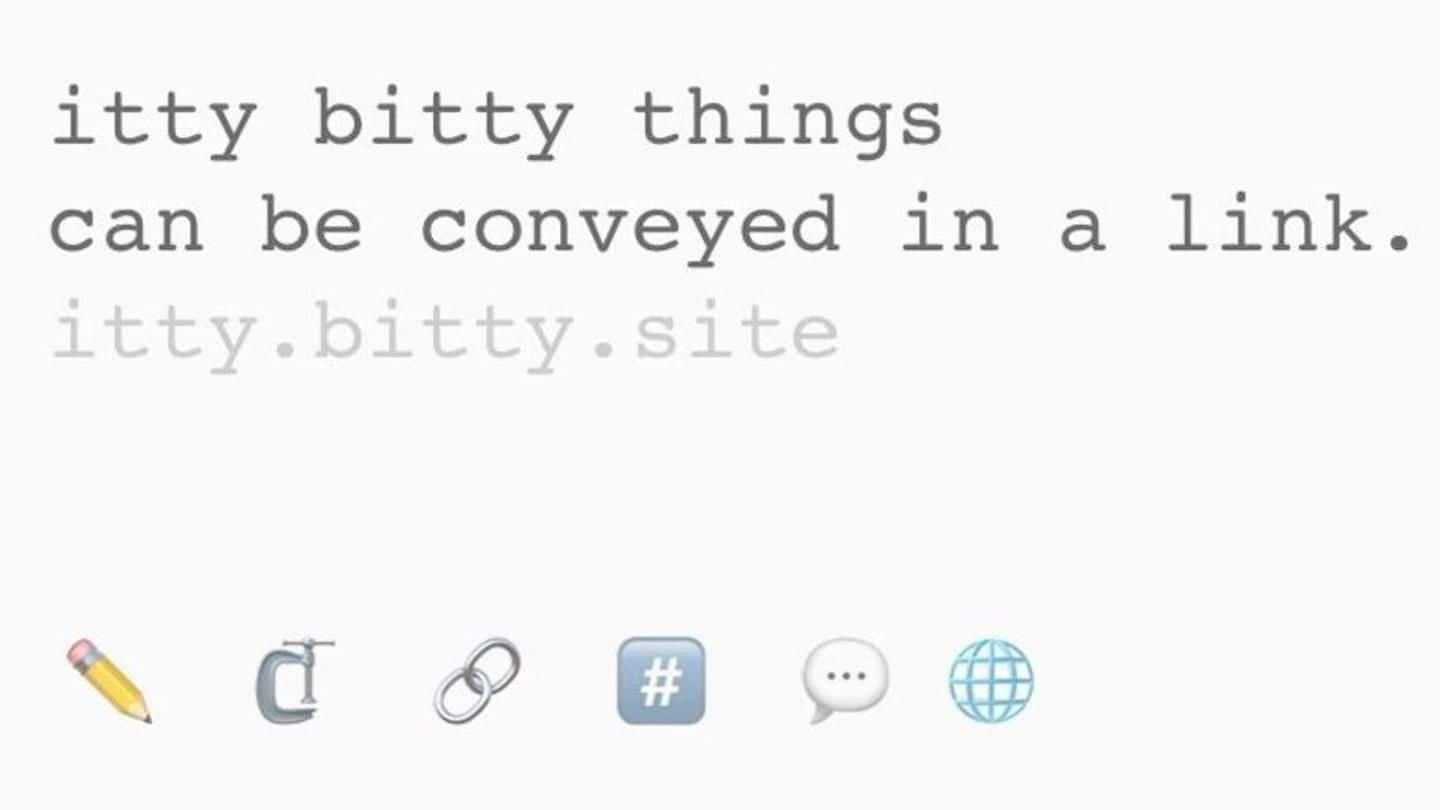
Itty bitty sites are entirely contained within their own links
What's the story
Nicholas Jitkoff, former designer at Google and current vice president of design at Dropbox, has developed a new web tool called "itty bitty site." Through it, users can create self-contained micro-sites, the entirety of which exists as a compressed URL. This means that itty bitty sites aren't hosted anywhere and don't store anything on a server.
Twitter Post
Jitkoff on itty bitty sites
I’ve made you an itty bitty experiment just in time for independence day–
— Nicholas Jitkoff (@alcor) July 4, 2018
a tool to create websites contained within their own link.
🌐 https://t.co/uc1ZIIJYNV - a brief summary
⚙️ https://t.co/1RMAW3amKO - how it works
What might you make with it?
🇺🇸 https://t.co/53RmE6CPP8 pic.twitter.com/y0aUY242CZ
Details
Significant reduction in size for HTML
The website states, "itty.bitty takes html, compresses it into a URL fragment, and provides a link that can be shared. When it is opened, it inflates that data on the receiver's side." The actual data of the website is stored at the end of its URL, after the # symbol. When the link is opened, this portion doesn't load on the receiver's server.
Nifty tool
Itty bitty sites can hold a printed page worth's content
An itty bitty site can hold plain text, ASCII characters, and emojis equivalent to one printed 8.5 x 11-inch page. It cannot contain the same amount of content as a regular website, but it can be used to compose standalone poetry, bypass Twitter's character limit, and as an alternative to domain redirecting. To experiment with this amusing format, you can go to itty.bitty.site.
Shareable links
The links that are generated are complete and substantial
The amount of content you can host on itty bitty sites also depends on where the link is being shared. Most platforms support 2KB of data in a URL, but Twitter and Slack allow for around 4KB while Chrome on Mac can accommodate up to 10KB. Itty bitty sites can be shared as QR codes as well unless the URL is over 2,610 bytes.
Information
The creation exists as an open source project on Github
With this, Jitkoff has enabled netizens to exchange almost any text content freely and privately without having to first host it on a third-party service. The potential of itty bitty sites is huge.